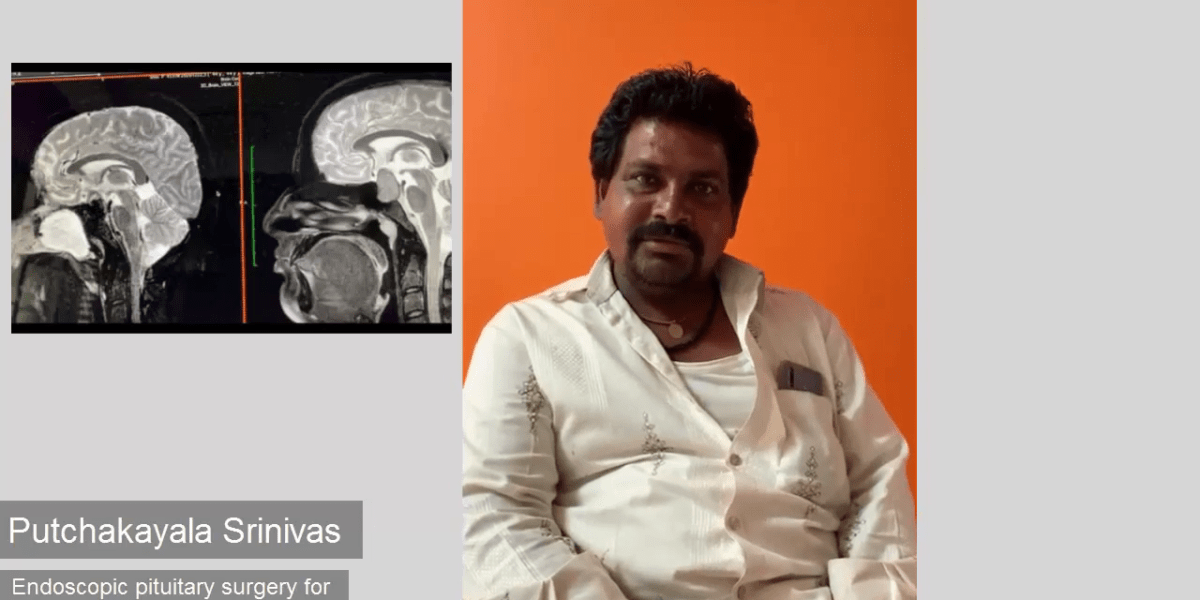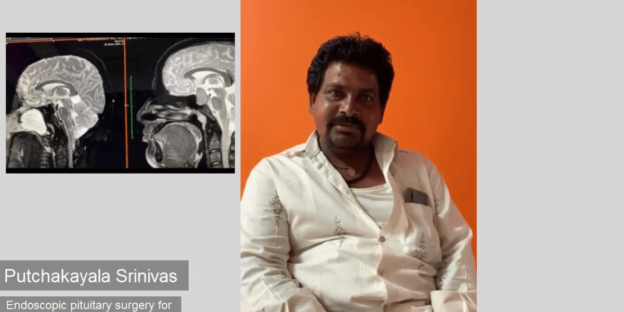Cushing’s syndrome – The best treatment at Dr Raos, Guntur
Introduction
Cushing’s syndrome is a rare condition that occurs when the body produces too much of the hormone cortisol. This can happen for a variety of reasons, including stress, tumors, or medications. The condition can lead to a number of serious health problems, including high blood pressure, diabetes, and osteoporosis. Cushing’s syndrome is typically diagnosed by a combination of physical exam, blood tests, and imaging studies. Treatment may involve surgery, radiation therapy, or medication. Looking for the best treatment for the Cushing disease look no further than Dr Raos hospital, Guntur, having the best neurosurgeon in India, Dr Rao.
causes
There are several possible causes of Cushing’s syndrome, including: -Excessive production of the hormone cortisol by the adrenal glands (primary hypercortisolism) -Excessive production of ACTH by the pituitary gland (secondary hypercortisolism) -Ectopic ACTH production (when ACTH is produced by a tumor outside of the pituitary gland) -Use of exogenous corticosteroids (such as prednisone) In most cases, Cushing’s syndrome is caused by excess cortisol production by the adrenal glands. This can be due to a tumor on one of the adrenal glands (an adenoma), or it can be due to a tumor on the pituitary gland that secretes ACTH (a pituitary adenoma). In some cases, Cushing’s syndrome can also be caused by ectopic ACTH production, which is when a tumor outside of the pituitary gland produces ACTH. Finally, Cushing’s syndrome can also be caused by the use of exogenous corticosteroids, such as prednisone.
symptoms
Cushing’s syndrome is a hormonal disorder that occurs when the body produces too much of the hormone cortisol. Cortisol is a steroid hormone that is produced by the adrenal gland in response to stress. It plays an important role in the body’s response to stress and helps to regulate blood pressure, metabolism, and the immune system. Symptoms of Cushing’s syndrome can vary depending on the underlying cause. However, common symptoms include: • Weight gain, particularly in the face, neck, and trunk • Easy bruising • Thinning skin • Stretch marks • Red or purple stretch marks on the skin • Slow healing of cuts and bruises • Acne • Irritability • Depression
Diagnosis
Cushing’s syndrome is diagnosed through a combination of medical history, physical examination, and tests. The most important test for diagnosing Cushing’s syndrome is the 24-hour urinary free cortisol test. This test measures the amount of cortisol in your urine over a 24-hour period. A high level of cortisol in your urine may indicate Cushing’s syndrome. Other tests that may be used to diagnose Cushing’s syndrome include: • Blood tests to measure levels of cortisol and other hormones • A dexamethasone suppression test, which measures how well your body responds to the steroid dexamethasone • An overnight 1 mg dexamethasone suppression test, which is similar to the dexamethasone suppression test but uses a lower dose of dexamethasone • A high-dose (8 mg) dexamethasone suppression test, which is used if the results of the other tests are inconclusive • An adrenocorticotropic hormone (ACTH) stimulation test, which measures how well your adrenal glands respond to ACTH
treatment
Cushing’s syndrome can be treated with medication, surgery, or a combination of both. Medication is typically used to control the hormone levels in the body, while surgery is used to remove the tumor that is causing the Cushing’s syndrome. In some cases, radiation therapy may also be used to treat the condition.
Conclusion
Cushing’s syndrome is a serious condition that can have a significant impact on an individual’s quality of life. While there is no cure for the condition, early diagnosis and treatment is essential in order to manage the symptoms and prevent further complications. With proper medical care, most people with Cushing’s syndrome can lead relatively normal lives. Looking for the best treatment for the Cushing disease look no further than Dr Raos hospital, Guntur, having the best neurosurgeon in India, Dr Rao.


